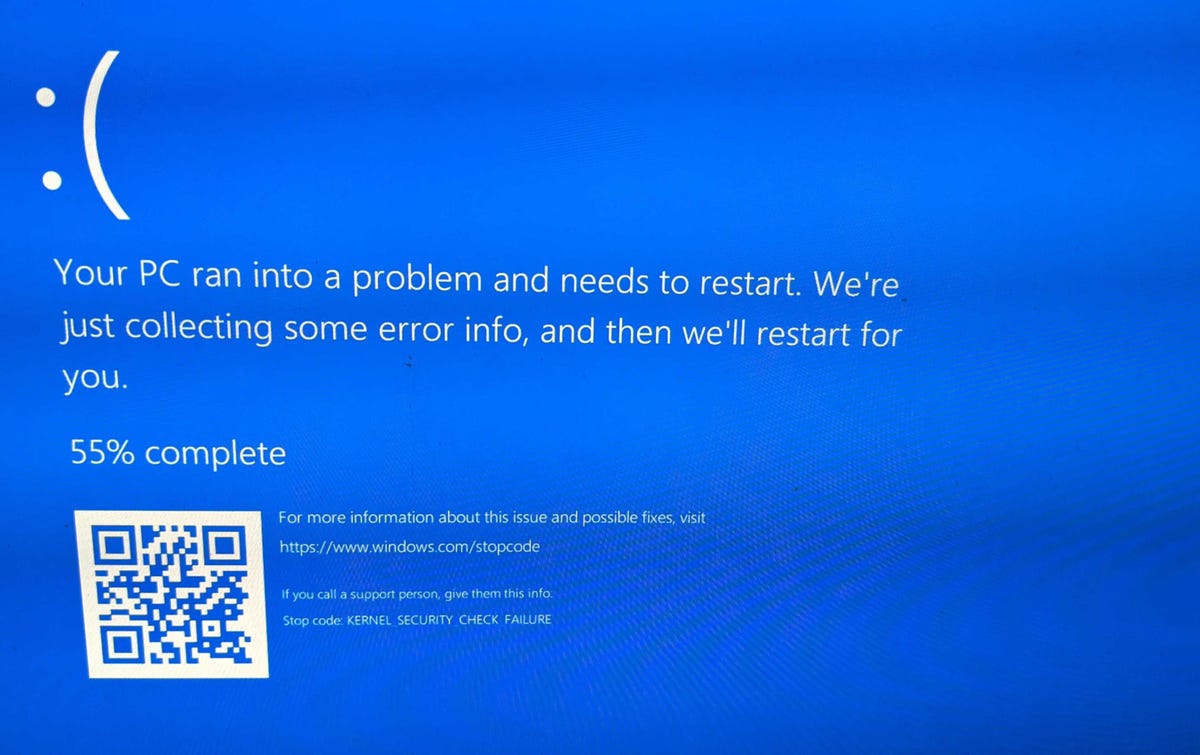
It's all my fault, I will willingly admit, but Windows on Arm has not been helpful in the slightest over the past few weeks. And when Microsoft's own tools refuse to help, that was the final nail in the coffin.
To explain the situation, a Samsung Galaxy Book2 has been floating around my lounge for some time -- partly as a great device to read the internet or email quickly, but also to keep up with how the Windows situation on Arm chips is developing. The short answer is not very well.
About a month or two ago, I noticed the device was stuck on version 1909 of Windows 10 where the operating system was getting quite insistent that the end of Microsoft's support for it was approaching. There were a number of failed upgrades that had some very vague errors about bad drivers, which was par for the course with this device.
No matter how hard I tried, or how many different things I did, the feature upgrades would fail when they were close to complete.
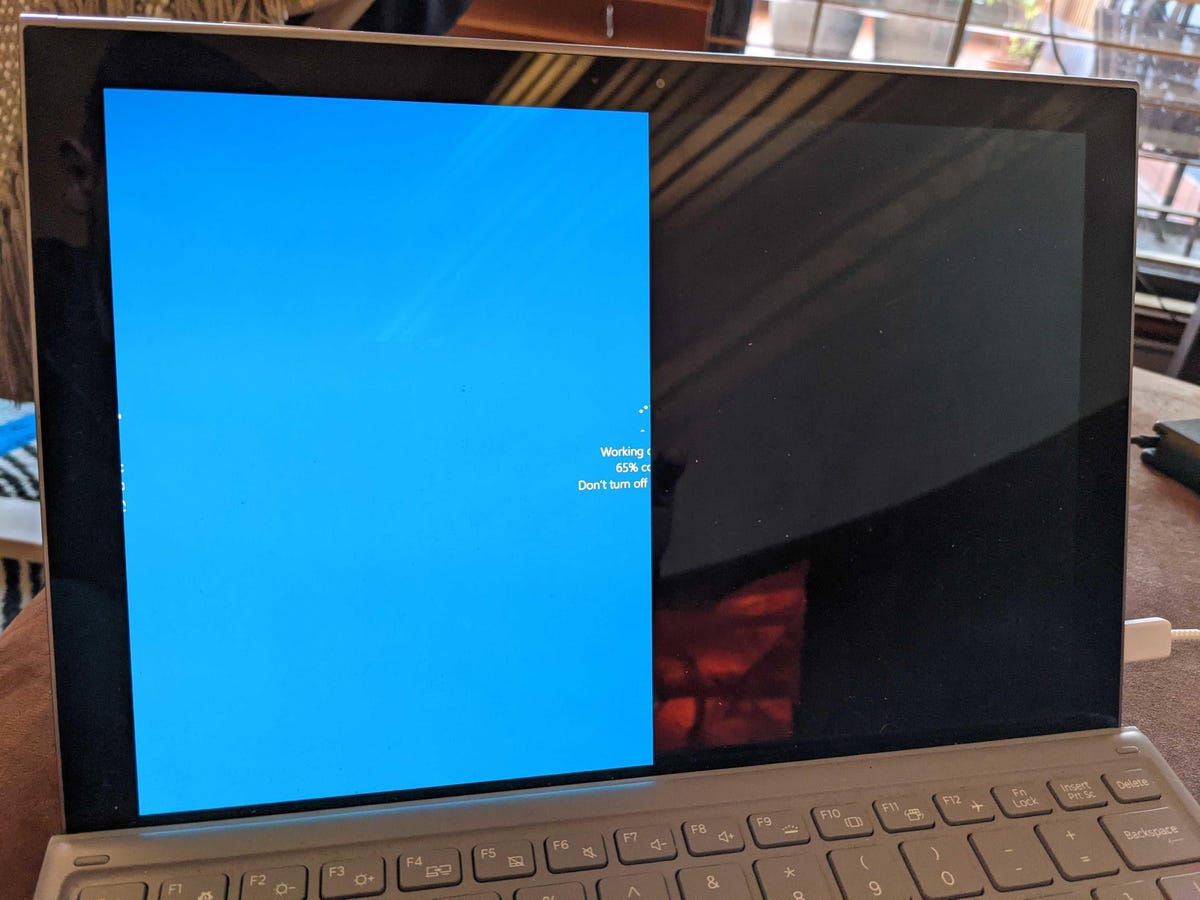
This is fine
Image: Chris Duckett/ZDNetThen a very smart idea appeared in my small mind, and everything went downhill from there. What if I downgraded the Book2 and tried to go forward from there. Bad idea. Disastrous idea. If you ever think about this, don't do it. However, I did, and realised no further updates would install correctly.
It was time to break the glass and factory reset the device. That process was fine, but once again no updates were possible. However, I did get to experience a cacophony of Windows errors I never knew existed.
By this stage, it was apparent that I was dealing with a hardware fault, or a bit or twelve had flipped on the recovery image. Whatever it was, it wasn't right. But no big deal -- the second bad thought in my mind said -- this is Windows, I can reimage the device and everything will go back to normal. Once again, bad idea. Disastrous idea. If you ever think about this, don't do it -- this is Windows on Arm, it's basically an appliance, not a typical Windows device that is fixable.
Windows people may know about the Media Creation Tool that is used to reinstall Windows, but it will fail if you try to run it on an Arm chip, probably because reflashing an Arm device is a dumb idea, as I would soon learn.
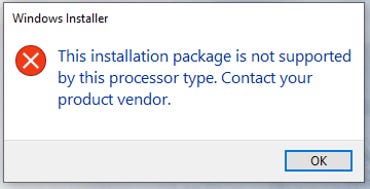
Compatibility tool being incompatible
Image: Chris Duckett/ZDNetHowever, before I completely stood on the rake to let it hit me in the face, Microsoft dropped its Windows 11 announcement, and the Snapdragon 850 inside the Book2 was on the chip list.
That's good news, I thought, so I ran the PC Health Check app -- and it failed. Well then, what if I sign up to the Insider program, maybe that will work? No, Microsoft closed that route too.
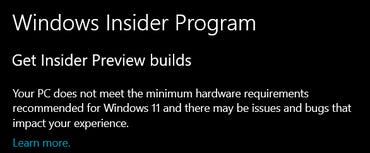
After that, it was truly time to step on a rake. After getting an image together that would install, it became apparent it did not have the proper drivers and its connectivity uses, from internet to USB, other than for storage were busted.
If you go looking for drivers for the Samsung Galaxy Book2, you are not going to find them. It's not like your traditional PC where your chip maker, motherboard maker, and device maker will have them listed on a support page. It's very much like trying to find Windows drivers on an iPad.
Just in case you thought putting Linux or BSD on this device was an option, I tried a couple of aarch64 images and they wouldn't boot. It's probably another driver issue.
In the end, the Book2 is now a useless and very-likely-to-crash-at-a-moment's-notice device that has reached its end.
Some people have managed to get Windows 11 onto a Nokia phone and a Raspberry Pi 4, so maybe there is life in it if a Windows 11 Arm ISO ever appears.
Even though Microsoft is back trying to push developers towards Arm again with ARM64EC, as a user, I'd steer well clear of any Arm device.
Intel's Evo platform is near enough, to cover much of the battery advantage the Windows on Arm platform had a couple of years ago, and you do not get screwed around by Microsoft's own tooling that does not treat Arm as a first-class citizen.
ZDNET'S MONDAY MORNING OPENER
The Monday Morning Opener is our opening salvo for the week in tech. Since we run a global site, this editorial publishes on Monday at 8:00am AEST in Sydney, Australia, which is 6:00pm Eastern Time on Sunday in the US. It is written by a member of ZDNet's global editorial board, which is comprised of our lead editors across Asia, Australia, Europe, and North America.
PREVIOUSLY ON MONDAY MORNING OPENER:
Article From & Read More ( If Windows 11 compatibility tool cannot run then my Windows on Arm journey is over - ZDNet )https://ift.tt/3jIKJnV
Technology
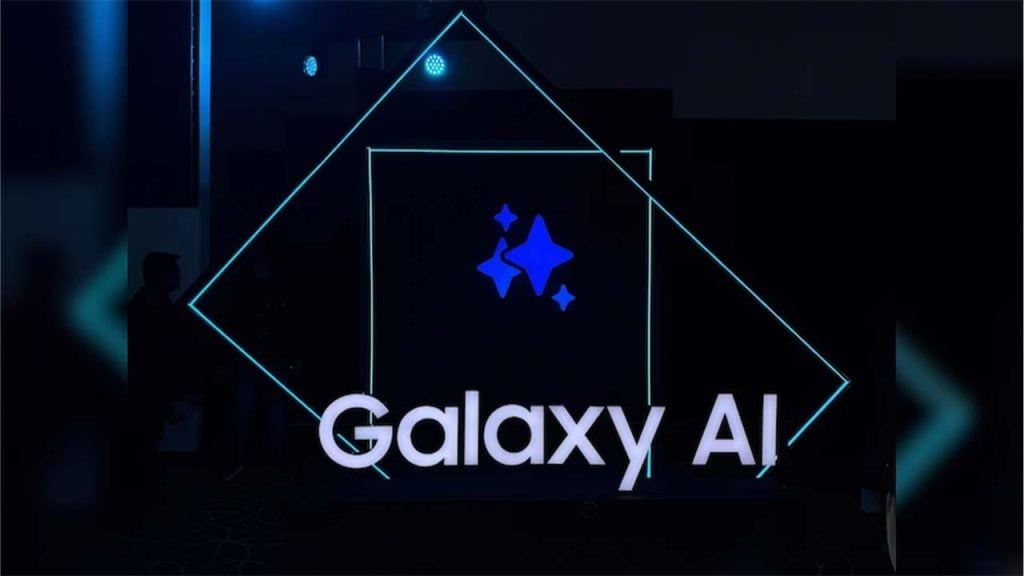
No comments:
Post a Comment